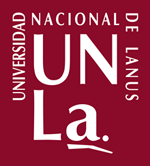Reaches and shortcomings of state policy towards the social and solidary economy. An analysis of two productive organizations
Abstract
The last decade represents not just a breakdown against the consensus gained by a social, economical and political model during the 90´s, but also a new way of thinking social policies in Argentina, now without the neoliberal´s residual stamp of the previous decade. Labor issues experienced far reaching changes concerning public policy areas. At the same time, the last decade involves the recovery of many classical (Wellfare) State functions lost years before, such as its relationship with civil society. Through a critical view regarding recent social policy shortcomings and potentialities, this article conducts two case studies of what is usually known as social and solidarity economy, born after the 2001 crisis.






